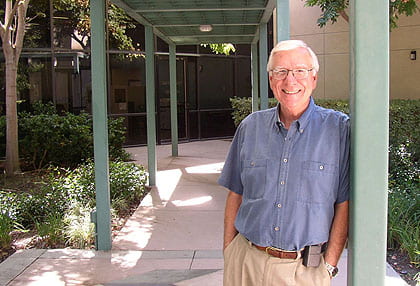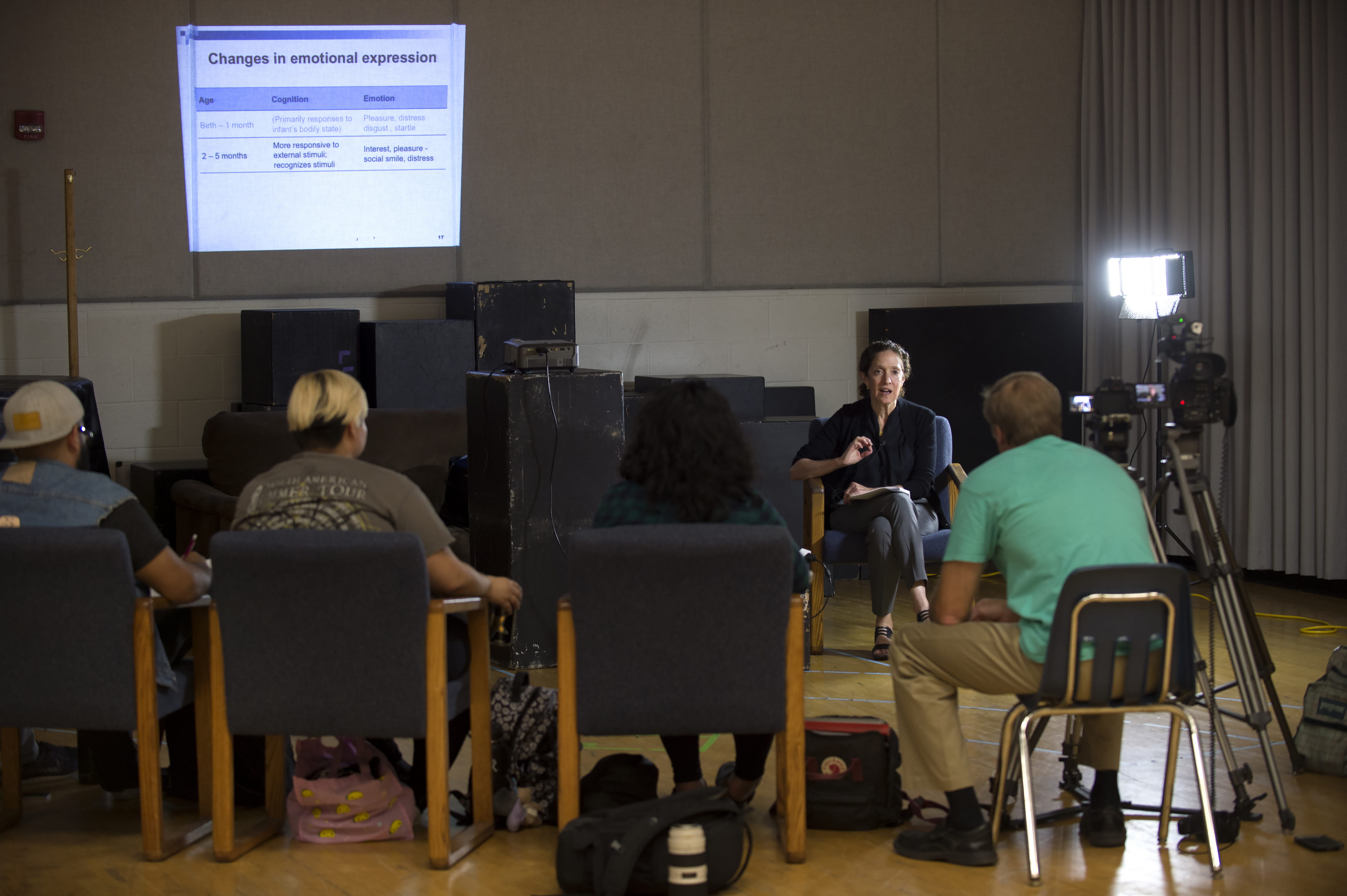Thanks for the memories
UCI neuroscientist James McGaugh recalls the campus’s pioneer days

When UCI celebrated its 40th anniversary, memory expert James McGaugh found himself sharing his memories of the campus’s early days.
McGaugh, who joined UCI in 1964 as founding chair of what is now the neurobiology and behavior department, discussed UCI’s early academic planning Nov. 3, 2005, at the campus’s 40th anniversary symposium, “Designing UCI: Celebrating Forty Years of Innovation.” Presented by the UCI Libraries, the free public event also featured talks by campus architect Rebekah Gladson and former Irvine Company president Ray Watson at the Barclay Theatre.
For the young McGaugh, planning UCI was a heady, adrenaline-filled experience – a “daily Disneyland.”
“How many people get to help establish a university from scratch?” he asks. “It was incredibly exciting – and fatiguing. There was so much to do -I was exhausted at the end of each day.”
Over four decades, McGaugh has held key administrative positions on campus (he’s former executive vice chancellor and dean of biological sciences) while teaching and conducting groundbreaking research in memory.
He founded UCI’s renowned Center for the Neurobiology of Learning and Memory, and a campaign is underway to create an endowed chair in his name for a CNLM fellow. He has received the Distinguished Faculty Award for Research, the alumni association’s Extraordinarius Award and the UCI Medal for his contributions to the campus and community. He even has a biological sciences building – McGaugh Hall – bearing his name.
McGaugh has written more than 500 scientific papers and a book, Memory and Emotion, offering a personal account of his research. On top of all this, he still finds time to play the saxophone and clarinet in jazz groups with fellow neuroscientists.
Forty years from now, how would the memory expert like to be remembered?
“It doesn’t matter if people remember me,” he says, “but I’d like the ideas I proposed in science to be influential and lead to more discoveries about them, after I’m gone.”
At UCI, it’s unlikely McGaugh or his research will be forgotten.

